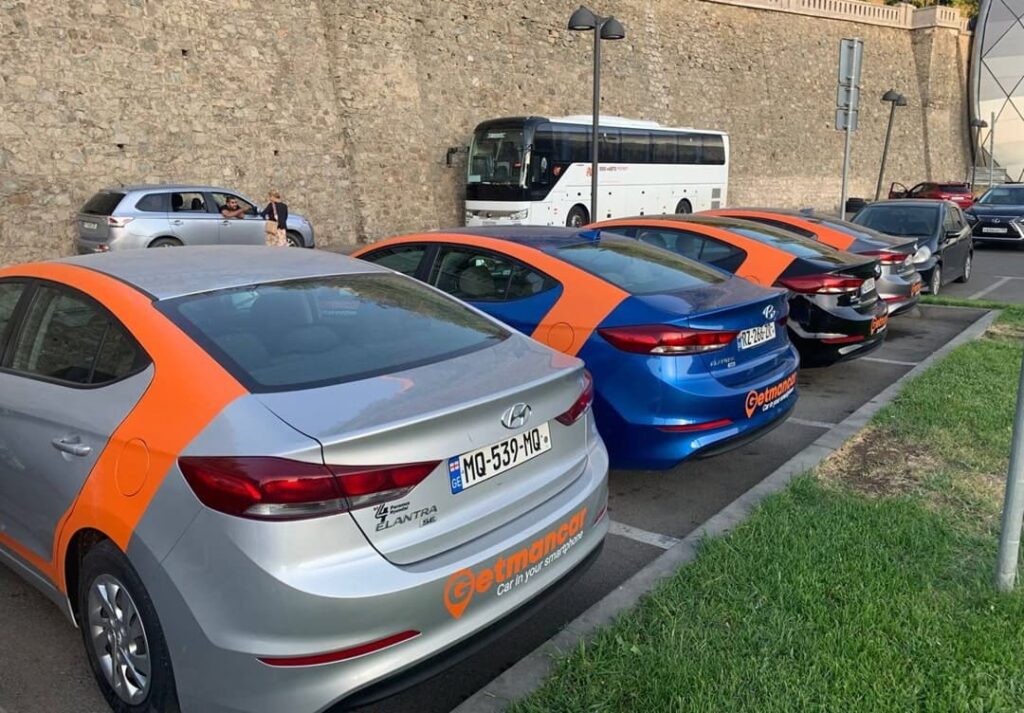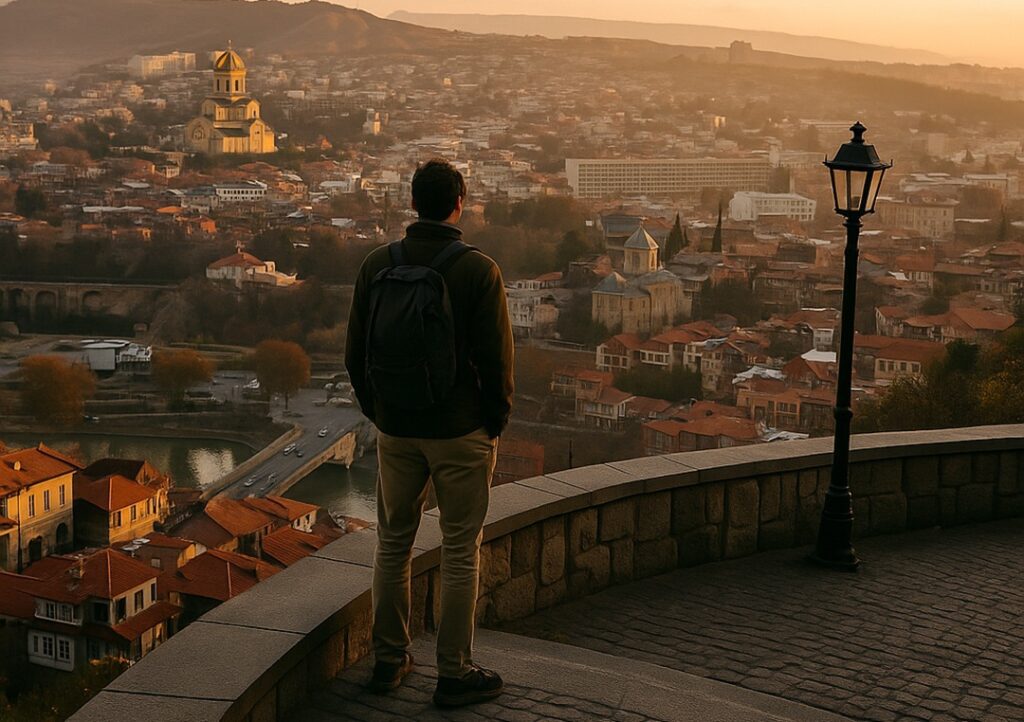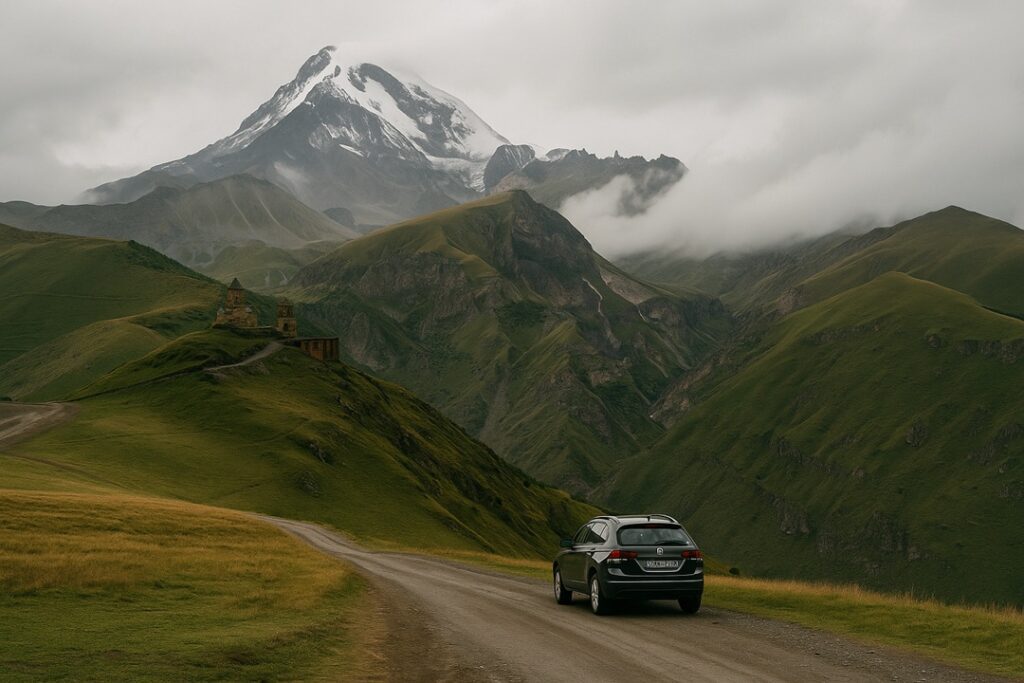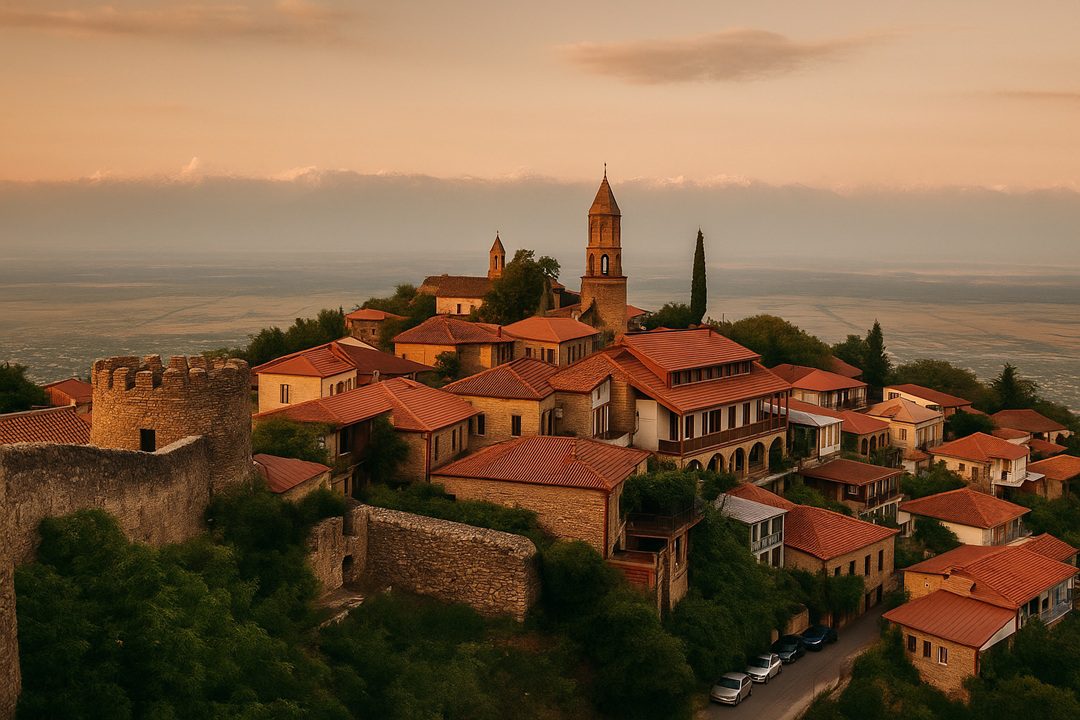review by a1DogTravel
First Encounter — The Country That Doesn’t Fit into Categories
You land expecting something you can label. Something Balkan. Something post-Soviet. Something vaguely Middle Eastern, perhaps. But Georgia doesn’t wait to correct you. It just shows itself. The first few hours are always a blur. The light is warmer than you imagined. The hills closer. The alphabet — impossible to guess. You step into the street and are greeted not by tourist signs or polished storefronts, but by laundry hanging between crooked balconies, by the smell of bread drifting from a hole in the wall, by a woman in slippers selling herbs from a cardboard box.
And somehow, none of it feels foreign.
There’s a current running beneath this country — an energy that’s slow but strong. You don’t see it at first, but you feel it. In the way someone insists you sit and eat before asking your name. In the silence of the old stone church that has no guide, no explanation, only a flickering candle and a cracked fresco that’s watched centuries pass.
Georgia doesn’t advertise itself. It doesn’t perform. It stands — and waits to be seen.
The borders on your map won’t help you here. This place belongs more to the land than to geopolitics. Mountains hold secrets. Rivers cut through centuries. And cities don’t expand — they layer. You begin to understand why people who visit once tend to return. Not because they haven’t seen enough. But because Georgia didn’t give them everything the first time.
A Land Built for Wanderers, Not Tourists
From Wine Cellars to Wind on the Cliffs
Georgia doesn’t chase you with things to do. It waits to see whether you’ll slow down enough to notice.
Maybe you start in a small village near Signagi. There’s a stone house with a rusted gate, a grandmother with hands dusted in flour, and a jug of amber wine that tastes like sunlight turned inward. You sit under a fig tree, and someone starts singing — not for you, but for the sky. The moment passes, but it stays with you. Because it didn’t ask to be remembered. It simply was. Later, you find yourself on a hill above a river gorge. The road behind you is cracked, the air smells like sage and rain, and there’s no reception. And somehow, it’s exactly what you needed.
There’s no checklist here. No top ten. Just the space between places — and the way Georgia teaches you to live in it.
Roads That Change the Way You Travel
Most countries have destinations. Georgia has directions. You don’t “go to Kakheti” — you follow the curve of the Alazani Valley. You don’t “see Kazbegi” — you climb toward it, feeling the altitude press into your lungs as the sky pulls wider. And for that, you need freedom. Not just a ride, but the ability to stop anywhere, anytime, for no reason other than the light looked beautiful on a ruined watchtower or a roadside market smelled like peaches. That’s when car rental starts making sense. Or better yet — something even more spontaneous. In Tbilisi, you realize you can grab a car using Getmancar, a local carsharing app that works like a handshake. No counters. No paperwork. Just you, the key in your phone, and the road unraveling ahead.

It’s how you end up in a vineyard at sunset, even though your plan was just a quick drive to the old sulfur baths. It’s how a detour turns into dinner with strangers in a hilltop village whose name you never write down.
Georgia rewards those who wander without asking why.
Tbilisi — Not a Capital, a Conversation
Streets That Don’t Repeat
You don’t explore Tbilisi with a map. You drift through it — carried by corners, scents, and sounds that keep folding in on each other like a story that refuses to end. A cracked staircase leads to a courtyard with laundry strung like prayer flags. A cat watches you from a second-floor balcony, half-asleep, unimpressed. Somewhere nearby, someone is playing a duduk, or maybe it’s just the wind moving through the copper pipes. There are neighborhoods here that feel like old letters.
- Mtatsminda — steep and slow, with ivy and silence.
- Avlabari — uneven and golden at dusk.
- Sololaki — eccentric, theatrical, and tender around the edges.
You walk not because you need to get somewhere, but because every block feels like it might offer something — a view, a smell, a stranger who calls you “friend” before asking your name.

The Feeling You Belong — Even on Day One
Tbilisi doesn’t care how long you’re staying. It treats you as if you’ve already lived here. You sit on a rooftop with strangers, drinking wine from mismatched glasses. The buildings around you lean slightly, as if they’re listening in. Someone puts on music — a mix of jazz and folk, soft and broken in like an old shirt — and no one talks for a while. The city hums below.
In most places, hospitality is an industry. Here, it’s instinct.
People invite you into their homes without hesitation. A baker hands you a hot piece of khachapuri with a nod. A man on the street insists you take the last cigarette, even though it’s clearly his. A child gives you a walnut from her pocket and walks away. You find yourself sitting in a basement café with crumbling walls, and it feels more real than any boutique you’ve ever stepped into. The waitress doesn’t smile out of obligation. She just is — like the candle on the table, like the chipped teacup, like the rain outside hitting the windows without apology.
In Tbilisi, no one tries to sell you the city. They just let you live inside it.
Mountains, Myths, and the Silence Between Words
Svaneti — When Time Turns to Stone
The road to Mestia is not smooth. It coils and snaps, climbs and breaks. But with each kilometer, the world narrows — not in size, but in noise. Villages appear like secrets whispered between ridges. Stone towers rise without context, as if they’ve always stood there, waiting for your arrival but not depending on it. You arrive and there’s snow — even in summer. Laundry dries on wooden fences. Cows stand in the middle of the road as if to test your patience or your reverence. And behind it all, the mountains — jagged, white, unblinking — like gods that no longer intervene, only observe.
In Svaneti, time feels less like a river and more like a stone basin. Things settle here. Voices lower. Eyes meet longer. You walk a path cut into the cliffside and feel the wind push against you as if to ask, Are you ready for this silence?
And maybe you are. Maybe for the first time in years.
Kazbegi — Where God Might Still Whisper
The drive to Stepantsminda along the Georgian Military Road is beautiful in a way that doesn’t need adjectives. The kind of beauty that leaves you quiet. Valleys open like hands. Hills roll like breaths. You pass roadside shrines, shepherds, military ruins, and waterfalls that don’t need names. Then you see it — the Gergeti Trinity Church, perched on its lonely hill, just beneath Mount Kazbek. It’s small. Modest. But behind it: a wall of mountain that looks like it might remember the beginning of time. You climb to it, either by foot or car, and the higher you go, the less you think about what brought you here. You stop trying to take pictures. You stop speaking. There’s only the crunch of your boots and the sound of wind through grass.

And when you reach the top, you don’t feel accomplished. You feel… still.
Something about that view, that wind, that moment — it doesn’t congratulate you. It doesn’t offer meaning. But it stays. Like a low note at the end of a song you didn’t know was playing.
What You Taste, What You Hear, What You Keep
Wine That Remembers Things You’ve Forgotten
There’s a kind of quiet that settles when a Georgian toast begins. Not because it’s formal. Not because it’s rehearsed. But because everyone understands: this moment is not small.
The tamada lifts his glass — not to impress, but to connect. He speaks slowly. Maybe he toasts to mothers. To ancestors. To those who couldn’t make it tonight. And while he speaks, you feel something rise inside you — not emotion exactly, but memory. Even if the story isn’t yours. The wine helps. But not in the way you expect. This isn’t about getting drunk. It’s about tuning in.
Qvevri wine — made in clay vessels buried in the earth — doesn’t taste like anything else. It doesn’t try to. It’s bold, dusty, sometimes cloudy, often wild. Like the country itself. You sip, and something deep opens — a kind of warmth, a kind of ache. The meal continues, but the air has changed. There’s more laughter. More eyes meeting. Time loosens its grip.
You don’t ask for a second glass. It just appears.
Polyphony and the Space Between Voices
Somewhere in the evening — maybe after the third toast, maybe just before dessert — someone sings. It doesn’t come with warning. There’s no stage, no microphone. Just a voice — low, resonant, ancient — and then another, and another. The room falls into a hush not out of politeness, but out of gravity. Georgian polyphony doesn’t entertain. It grounds.
The harmonies aren’t polished. They’re raw, sacred, deeply human. You feel them in your spine. In your throat. In that part of you that forgot how to cry, but suddenly remembers. And when the last note fades, no one claps. No one needs to. The silence that follows is more than enough. Later, walking home through dark streets, you’ll hear echoes of that song in the air — in the hum of streetlights, the creak of a gate, the rhythm of your own steps.
You don’t know the words. But somehow, you understand.
You Don’t Leave Georgia, You Carry It With You
Georgia doesn’t end when your trip does. It doesn’t fold neatly into a memory or shrink into a photo album. It stays — not in your passport stamps, but somewhere quieter. Somewhere slower. It shows up weeks later, when you drink wine and expect it to say something, but it doesn’t. When the bread you buy is warm, but not alive. When someone asks how your trip was, and you find yourself pausing — not because you don’t know what to say, but because too much can’t be said.
You remember the road dust on your boots. The weight of a toast. The sound of wind between towers. You remember how light hit a stone wall at 4:00 p.m. in a village you’ll never find on a map again. You try to explain it — the way strangers became friends without needing permission, the way silence in the mountains said more than any guidebook, the way music felt like breathing. But it’s no use. Some places you don’t retell. You relive. Georgia never asks you to fall in love with it. That would be too obvious. Too easy. Instead, it invites you to stay long enough to recognize something — in its streets, in its people, in yourself. And once you do, you won’t leave Georgia.
You’ll just carry it — in your step, in your voice, in the space between sentences — for a very long time.
